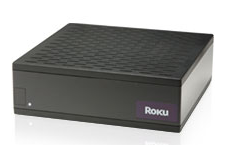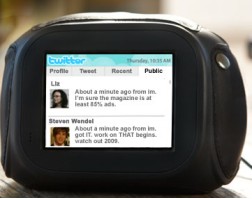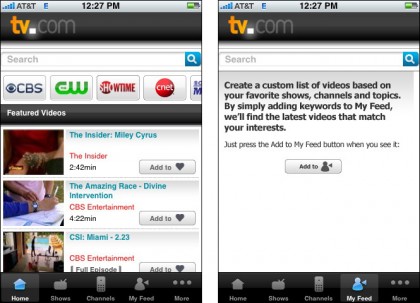 No longer limited to Netflix support-only, today Roku announced that its $99 set-top box, following a software update, can now be used to rent and purchase movies and TV shows from Amazon’s Video-On-Demand (VOD) service.
No longer limited to Netflix support-only, today Roku announced that its $99 set-top box, following a software update, can now be used to rent and purchase movies and TV shows from Amazon’s Video-On-Demand (VOD) service.
Amazon VOD (US-only) has a library of over 40,000 movie and TV titles, with new releases offered on the same day they are released on DVD, something that Netflix is currently unable to match, instead focusing more on back catalog material offered as part of a fixed monthly subscription that also includes traditional DVD rentals by post. In this sense, the two services both compete and complement each other, depending on how much and what kind of content customers want to consume.
See also: No more downloads, Amazon moves its online video store to the cloud
The Amazon tie-in also takes advantage of the e-tailers’ expertise in ‘cloud’ computing. Since the Roku digital video player is only capable of streaming not downloads, purchases are stored on Amazon’s own servers, making it possible, for example, to begin viewing a movie on the PC and then continue on the TV via a Roku set-top box.
Video demo courtesy of NewTeeVee after the jump… Continue reading »
 Hoping to move beyond being a geek’s favorite boutique gadget to something more mainstream, Chumby is partnering with chip maker Broadcom to make it easy for consumer electronics companies to embed its widget platform into Internet-connected TVs, Blue-ray players and set-top boxes.
Hoping to move beyond being a geek’s favorite boutique gadget to something more mainstream, Chumby is partnering with chip maker Broadcom to make it easy for consumer electronics companies to embed its widget platform into Internet-connected TVs, Blue-ray players and set-top boxes.
 It’s always interesting to see the politics of business play out through leaks in the media, and I suspect that in the case of Nokia and its mobile carrier “partners” we haven’t seen the last of it. The Finnish handset maker’s recent announcement of
It’s always interesting to see the politics of business play out through leaks in the media, and I suspect that in the case of Nokia and its mobile carrier “partners” we haven’t seen the last of it. The Finnish handset maker’s recent announcement of  I thought it was a bit of a non-story when Netflix CEO Reed Hastings first mentioned that the company would at some point in the future offer customers a streaming-only subscription – 2010 was mentioned as a possible time frame – as frankly it’s kind of obvious that one day this will be case. The DVD format won’t last for ever, although it’s not going away any time soon, and is gradually being replaced by on-demand Internet delivered video. This week the company’s Chief Financial Officer Barry McCarthy
I thought it was a bit of a non-story when Netflix CEO Reed Hastings first mentioned that the company would at some point in the future offer customers a streaming-only subscription – 2010 was mentioned as a possible time frame – as frankly it’s kind of obvious that one day this will be case. The DVD format won’t last for ever, although it’s not going away any time soon, and is gradually being replaced by on-demand Internet delivered video. This week the company’s Chief Financial Officer Barry McCarthy 
 Set-top box movie service Vudu claimed a first today, offering download to-own movies in HD, albeit with a very limited catalog and high prices.
Set-top box movie service Vudu claimed a first today, offering download to-own movies in HD, albeit with a very limited catalog and high prices.